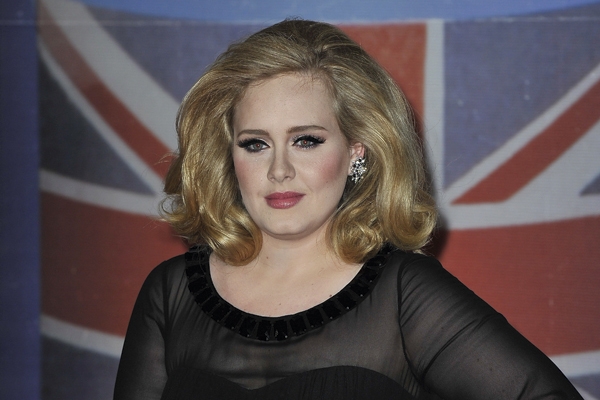On 19 March, Adele’s 21 overtook Dark Side of the Moon to become the seventh bestselling album in British music history. A day or two later it caught Dire Straits’ Brothers In Arms napping, and eased into sixth place. So far 4.15 million copies have been sold. One in six British households has one. Ahead lie Thriller, (What’s The Story) Morning Glory?, Abba’s Gold, Sgt. Pepper and Queen’s Greatest Hits, still the daddy with 5.86 million registered sales.
These five have been the top five for so long that industry experts with sad goatees thought they would never be caught. But records are made to be broken, or at the very least scratched. Thus young Adele, with her big voice, amazing nails and rather good songs, sweeps aside all competition, past and present. Apparently those same industry experts are now working night and day trying to decide what she could call her next album. An odd but non-prime number, ideally the product of two prime numbers, looks favourite.
But weren’t albums supposed to be over? Had we not all stopped buying them? Music sales (including legal downloads) fell last year for the seventh year in succession. Overall they have dropped about 30 per cent since 2004. But compact discs still account for three quarters of those sales, and roughly four quarters of all sales to me. (Apparently some older consumers haven’t quite got to grips with downloading. The poor fools.) So the market is still there, even if it is usually dormant.
Adele’s extraordinary success isn’t a freak. It merely suggests that when there is something people want to buy, they whip out the credit card with the insouciance of old. And it just about goes without saying that most of the people doing this buying are the ones with disposable income, i.e. grown-ups. Pop fans older than 21 have fallen upon 21 with relief. At last, something you can listen to with a recognisable tune. The problem is, what do you listen to next?
Michael Hann wrote an interesting piece in the Guardian the other day about the disappearance of pop tunes that addressed grown-up issues. In the 1980s, Don Henley could have a huge global hit with a song as glumly middle-aged as ‘The Boys of Summer’. Bruce Springsteen’s ‘Tougher than the Rest’ wasn’t remotely about being 16. These were big hit singles, but the only registered adult having hits nowadays is Madonna, and she has to work out for eight hours a day and wear silly shorts in order to do it. Mainstream pop has its youth audience and is presumably very happy with it, but it does seem odd that the music industry now aims almost all its wares at a sector of the population that hasn’t a bean and doesn’t like paying for things anyway, while blithely disregarding the people with the cash.
Music nutters like me (and possibly you) are all right: we are willing to make the effort to find out what’s worth listening to. Because we know that beyond the sterility of the Radio 1 playlist, a surprising amount of useful music is being made. It’s just not played on the radio. (If Radio 2 or 6Music play a new song that is any good, you almost weep with gratitude.) But what of the casual music buyers? It is they who have been abandoned by the business, the people who used to buy four to six albums a year. By doing this, they kept the business in business. It does seems a little careless to let them go.
The hilarious thing about this is that Adele herself is only 23. She isn’t singing for us. She is singing for her own age group, whether they like it or not. So the best the music business can do for us is a young person who sings a bit like an old person, and for this I think we are supposed to be grateful. What they will give us now is loads of other young singers who sound like Adele but aren’t as good. Plus Coldplay. And yet more box set reissues of old Pink Floyd records. Any business that persistently and wilfully ignores its best customers probably deserves whatever happens to it, don’t you think?






Comments